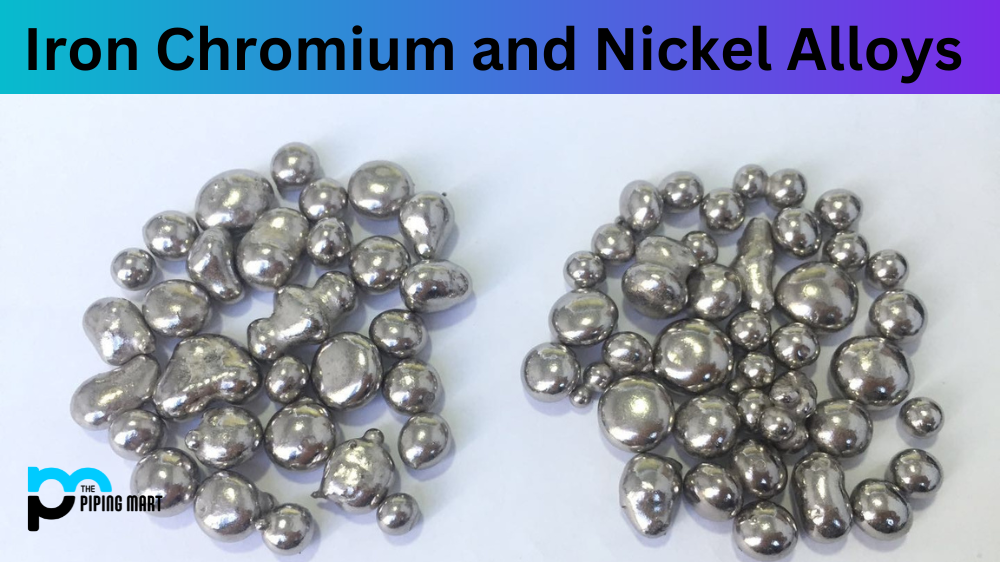Nickel alloys are widely used in various industries, including chemical processing. These alloys have excellent properties that make them suitable for such applications. They are resistant to corrosion, high temperatures, and wear and tear. Their unique properties make them ideal for handling chemicals and substances that are highly corrosive or abrasive. In this blog post, we will explore some of the applications of nickel alloys in chemical processing.
What is Nickel Alloys?
Nickel alloys metals is a typically iron and chromium, are combined with nickel. They have superior resistance to corrosion and oxidation, making them well-suited for use in many settings.
Furthermore, nickel alloys exhibit excellent thermal conductivity, which helps control temperatures in items like gas turbines or exhaust systems. Other characteristics like creep resistance give them an edge over competing metals for high-temperature uses like turbine blades or furnace parts that undergo frequent heating and cooling cycles.
In short, nickel alloys can provide solutions across various industries thanks to their diverse range of beneficial properties, such as exceptional resistance to corrosion and oxidation, as well as much higher strength than plain iron or steel products at the same weight.
Applications of Nickel Alloys in Chemical Processing
Manufacturing of Chemical Reactors –
Nickel alloys are extensively used in the production of chemical reactors. These reactors are in high demand and essential for numerous chemical processes. These alloys can withstand high pressure and harsh chemical environments without deterioration. Reactors manufactured from nickel alloys are highly oxid-resistant, making them ideal for chemical processing plants.
Heat Exchangers –
Heat exchangers are widely used in chemical processing plants to transfer heat between fluids. Nickel alloys are often used in the construction of heat exchangers due to their high resistance to corrosion and excellent heat transfer properties. Nickel alloys, such as Inconel and Hastelloy, are particularly popular in heat exchanger applications due to their heat resistance at high temperatures.
Catalysts –
Nickel alloys containing chromium and molybdenum are used as catalysts in the production of fuels and other chemicals. Their unique properties make them ideal for accelerating chemical reactions and stabilizing intermediates involved in chemical processes.
Piping Systems –
Piping systems are essential components in chemical processing plants. They are responsible for transporting hazardous chemicals between the processing stages. Nickel alloys are extensively used in the construction of piping systems as they offer excellent resistance to corrosion and high temperatures. Moreover, they can withstand high-pressure environments, making them ideal for this application.
Strainers and Screens –
Nickel alloys are also commonly used to produce screens and strainers applied in chemical processing plants to keep unwanted particles out of the system. They are durable materials and exhibit excellent resistance to abrasion and corrosion.
Conclusion:
Nickel alloys play a vital role in chemical processing plants due to their excellent resistance to corrosion, high temperatures, and various chemical environments. The unique properties make nickel alloys ideal for various applications, including reactors, heat exchangers, catalysts, piping systems, and strainers. Their reliability and durability have made them indispensable in the chemical industry. As technology and processes evolve, nickel alloys will continue to be crucial for the chemical processing plant industry.

A passionate metal industry expert and blogger. With over 5 years of experience in the field, Palak brings a wealth of knowledge and insight to her writing. Whether discussing the latest trends in the metal industry or sharing tips, she is dedicated to helping others succeed in the metal industry.




